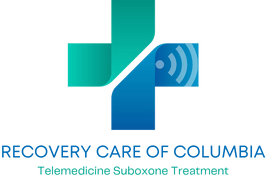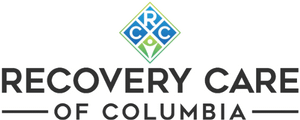Columbia Suboxone Clinic Blog
4 Keys for Successful Addiction Treatment
How Did We Get so Addicted to Opioids?
Are you a victim of the opioid addiction crisis? The 4 Keys for Successful Addiction Treatment is for anyone affected by the opioid crisis in the United States. The opioid crisis is an ongoing tragedy that has left a trail of devastation in its wake. Southern states like Tennessee, were among the hardest hit, according to the DEA Pain Pill Map.
What began as a seemingly innocent solution to pain management has evolved into a full-blown epidemic, claiming lives and tearing apart families and communities across Tennessee. From rural towns to bustling cities like Nashville, Memphis, and Knoxville, no corner of Tennessee has been left untouched by the wake of opioid abuse.
Greed, Over-Prescribing, and Misinformation
At the heart of the crisis lies the overprescription and widespread availability of opioid medications. Initially marketed as a safe, virtually non-addictive miracle solution for chronic pain, drugs like oxycodone, hydrocodone, and fentanyl flooded the market, prescribed by well-intentioned physicians seeking to alleviate their patients’ suffering. Sadly, many physicians were sold a false sense of safety about the opioids they were prescribing as a result of being misled about the highly addictive nature of these substances.
“Behind these staggering statistics are stories of loss and despair, as families grapple with the devastating consequences of addiction.”
At the heart of this issue were pharmaceutical companies that became accustomed to soaring sales and record-setting profits. To sustain these profits, teams of salespeople were hired (and financially motivated) to increase sales by promoting misinformation about the safety of extended-release oxycodone tablets. The 4 Keys for Successful Addiction Treatment can help people in recovery overcome the results that led from this overwhelming greed.
Physicians all across Tennessee were fed lies about the safety of these extended-release opioids. So much so that one pharmaceutical company even convinced the FDA that their 5 mg, 10 mg, 15 mg, 20 mg, 30 mg, 40 mg, 60 mg, 80 mg, 120 mg & 160 mg extended-release oxycodone tablets were “virtually non-addictive.” In reality, these tablets were more addictive than morphine by multiples.
As prescription opioid use soared, so too did rates of addiction and overdose. According to the National Institute on Drug Abuse, more than 70,000 Americans died from drug overdoses in 2019 alone, with opioids accounting for the majority of these fatalities. Behind these staggering statistics are stories of loss and despair as families grapple with the devastating consequences of opioid addiction.
Addiction Knows no Bounds
One of the most insidious aspects of the opioid crisis is its indiscriminate nature. Addiction knows no bounds, affecting people of all ages, races, and socioeconomic backgrounds. From teenagers experimenting with prescription painkillers to elderly patients grappling with chronic pain, no one is immune to the allure of opioids.
Moreover, the stigma surrounding addiction often prevents individuals from seeking help, compounding the problem and perpetuating a cycle of suffering.
Thankfully, in recent years, efforts to combat the opioid crisis have gained a lot of momentum. Policymakers, healthcare providers, insurance networks, and community organizations have worked tirelessly to address the root causes of addiction and improve access to treatment.
Furthermore, the expansion of medication-assisted treatment (MAT) programs and telemedicine medication-assisted treatment (TeleMAT) has provided hope for those struggling with opioid addiction in Tennessee. TeleMAT combines telemedicine, and FDA-approved medications such as Suboxone (buprenorphine and naloxone) with counseling and behavioral therapies, offering a comprehensive approach to recovery.
By addressing both the physical and psychological aspects of addiction, TeleMAT has been shown to significantly improve outcomes for individuals seeking to overcome their opioid dependence, all from the convenience of home.
Recovery Care is Tennessee’s TeleMAT provider, delivering a 100% telemedicine addiction treatment program to anyone living in Tennessee. Our unique telemedicine platform makes addiction treatment accessible to everyone in Tennessee, regardless of their location. All TennCare Medicaid insurance is accepted, as well as most all commercial health insurance plans.
Recovery Care’s TeleMAT program makes addiction treatment accessible to anyone in Tennessee, especially for those who lack transportation or are located in rural communities.
Click this link if you’re ready to begin a Suboxone TeleMAT Program.
By addressing the root causes of addiction, improving access to treatment and support services, and reducing the stigma surrounding substance use disorders, TeleMAT clinics like Recovery Care of Columbia work towards a future where all individuals in Tennessee have the opportunity to live healthy, fulfilling lives free from the grip of opioids.
4 Keys for Successful Addiction Treatment
Success Key #1 – Join a Tennessee Suboxone TeleMAT Program
If you live in the state of Tennessee and are ready to overcome your addiction to opioids, join Recovery Care’s Suboxone TeleMAT Program for all of Tennessee.
Our recovery program utilizes the most comprehensive solutions for overcoming opioid addiction using telemedicine medication-assisted treatment:
- Suboxone medications are used to stabilize those who are addicted to opioids, helping overcome withdrawals and cravings.
- Counseling provides a therapeutic solution for identifying the root causes of addictive behaviors.
Case management helps coordinate and integrate a successful recovery plan.
Success Key #2 – Find a Recovery Community
Opioid addiction and isolation go hand-in-hand. Opioids provide a euphoric experience for the user, providing temporary emotional relief from loneliness and separation. When that temporary euphoria ends as a result of transitioning to Suboxone, there’s really only one solution left: Community. The best place to find a like-minded community is Group recovery.
Group recovery communities like Alcoholics Anonymous and Narcotics Anonymous provide an essential part of a whole recovery program, as well as provide a sense of community and belonging. Not only do addicts and alcoholics generally realize their problems are not unique in group recovery, but they also become part of an organism that works as a whole to improve each other’s lives.
Find a group recovery meeting near you
Success Key #3 – Locate the Source of Your Addiction
“Suboxone will save your life. Counseling will change your life.”
In addition to the comprehensive counseling sessions provided in TeleMAT programs, there’s no such thing as “too much therapy”. Many people with long-term sobriety have engaged the services of a personal or “private” therapist to dig even deeper into the issues that drive their addictive behavior. Family and/or marriage counseling is also recommended to ensure your family, spouse, or partner is educated and on board with your recovery program.
At Recovery Care, we share a common belief about counseling: Suboxone will save your life, and counseling will change your life.
Success Key #4 – Don’t Quit Recovery Just Because Life Gets Good
Something we’ve witnessed repeatedly is people joining our TeleMAT recovery program, their life changing for the better very quickly, and then quitting their program program too soon. They relapse and their life falls apart in a matter of days, often much worse than ever before.
It goes something like this:
- Joe has been addicted to oxy/fentanyl pills that he buys on the street for five years.
- He has lost his job, family, home, and dignity.
- Joe joined a TeleMAT program and is now clean for the first time in years.
- Joe’s eyes are clear. His thinking is sharp. He’s now kind and sincere with everyone he communicates with.
- Joe’s family can see a big difference in his behavior and attitude. He appears to be a “new man.” His family allow him back into the home.
- Joe’s old employer also sees a new, accountable, alert man in Joe and offers him his old job back.
- Joe’s life has gone from reckless to pretty fantastic in just a matter of weeks. Joe’s confidence soars for the first time in many years.
- Joe is confident about his newfound success and feels he’s cured himself of opioid addiction. He no longer feels the need for TeleMAT, group recovery, therapy, or a support system.
- Within days of leaving his recovery behind, Joe relapses, only this time it’s much worse.
- Joe is no where to be found for many days. His friends, family and employer can’t find him anywhere.
- Joe overdoses from the fentanyl-laced pills he bought on the street due to his tolerance changing as a result of being in recovery.
- Joe’s friends, family, and employer have again lost faith in Joe and need to let him go.
Don’t quit recovery when life gets good. Life keeps getting good the longer you remain in recovery. For many, recovery is a lifelong mission. The good news is that recovery can be something you genuinely enjoy, especially when you realize that continued recovery is what makes life great!
Start recovery today. Feel better tomorrow.



